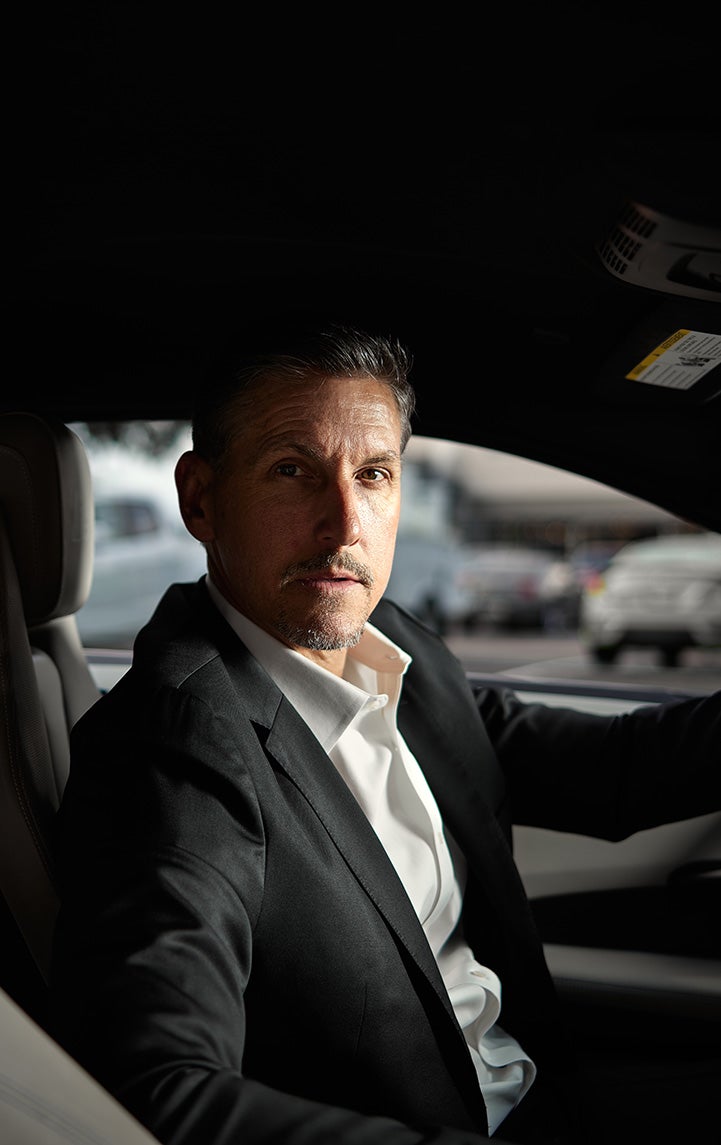Drop us a line if you’re interested in getting involved.
Whether it be sponsorship, contribution, feature or other,
we would love to hear from you!
Drew Williams
Stephen Foster
Nick Dauk
Brad Coleman
Kristen Anzelc

“We didn’t have much,” Knitowski, the youngest of three boys said, “but as long as you don’t go through life thinking you’re a victim, then you can accomplish anything you set your mind to.”
That mentality would take Alan Knitowski far in school, in the military, and in life. He grew up in Tucson, Arizona, with a zip code that reflected his humble roots. Instead of a college fund, the trio of sons received a speech from their parents urging them to earn a higher education on their own dime and through their own efforts. Looking back, Knitowski credits that rough conversation as the motivation to build the life he desired.
“Our parents said that they wouldn’t give us tuition money even if they had it. They believed that we needed to put in the work, be responsible, and take accountability for our lives. I did so with straight A’s and graduated as my high school’s valedictorian. It would have been great to grow up the way my own children have, but it’s also because my parents taught us to work hard and sacrifice the present for the future that my kids have the opportunities and financial support that I never had.”

Alan’s one-two punch of high marks and a sterling performance in diving, football, baseball, golf, and basketball earned him merit-based scholarships, though it was his life-long dream of becoming a pilot inspired by Top Gun that drove his decision to attend college in conjunction with military service. Despite receiving both a congressional nomination to the Air Force Academy and an appointment to the United States Military Academy at West Point from Arizona Senator John McCain, he chose a four-year Army ROTC Scholarship at the University of Miami instead.
“Most of my classmates at The U came from wealthy backgrounds; all I had was a $100 monthly check from ROTC.
One thing that my peers didn’t have, though, was my work ethic. I spent every extra minute I had pushing myself to be the best at everything imaginable. I likely would not have gotten my graduate degrees in engineering and business were it not for my active-duty status in the military.”
Years before his impromptu interview invitation in San Francisco International Airport, Knitowski was faced with a potential deployment to the Middle East — while still trying to complete his Industrial Engineering undergraduate degree at Miami.
“After Advanced Camp at Fort Riley, Kansas, I was serving in the 101st Airborne Division and led an infantry unit for a month as part of the Army’s Cadet Troop and Leadership Training (CTLT) summer program before my senior year at Miami. At the time, our unit was Deployment Ready Force One (DRF-1), which meant we needed to be wheels-up anywhere in the world within 18 hours if we were activated. I still hadn’t officially graduated from Miami — and was first in my Industrial Engineering class, to boot— when I got the activation call and subsequent denial for the deployment which soon led to the Gulf War after Saddam Hussein’s invasion of Kuwait. Upon completion of college a year later, I was commissioned as a second lieutenant in the Aviation Branch of the US Army and would be able to finally become a pilot.”
If ever there was a “right” way of achieving your goals, Alan Knitowski personified it. He made sure he outworked everyone on every level. He preferred to outperform his peers rather than party with them. He paid his dues and made his luck, and as his lifelong dream was finally becoming realized, he fell prey to his ambition.
“I was literally commissioned as an aviation officer, but because I decided to get a Master of Science in Industrial Engineering degree from the Georgia Institute of Technology, the Army yanked my pilot slot after graduation and put me in the Corps of Engineers to fulfill ‘the needs of the Army’. It was heartbreaking on every level.”
As expected, Knitowski excelled in his new role. He was sent to the US Army Ranger School where he was one of the few to graduate without being recycled.
His first mission: a year on South Korea’s DMZ during the 1994 North Korean Nuclear Crisis. After that came Hawaii and the 25th Infantry Division as his next assignment, which included a trip to California; a trip that was life changing in more ways than one.
“I thought it was a joke actually. This recruiter approached me at an airport bar and asked if I’d miss my flight from San Francisco to do an interview with Northern Telecom in Silicon Valley. They said they’d take care of my return flight, my hotel and they’d take me to and from the interview … all I had to do was say ‘yes’. By the time I got back to my home in Hawaii, they already had a formal job offer waiting for me.”
Soon after working for Northern Telecom, he Co-Founded and led Vovida Networks as its President and CEO, facilitating the source code development for voice over IP. By the turn of the millennium, Vovida Networks was bought by Cisco Systems and Knitowski became a multi-millionaire. Over the next two decades, Knitowski would lead a number of companies to the same success.

Swagger recently caught up with Alan Knitowski to pick his brain on overcoming adversity, moving forward after letting go of a dream, and how lessons learned in the military perfectly translate to entrepreneurial endeavors.
I didn’t drink in high school and didn’t even drink in college until after finishing my freshman year despite being an active Lambda Chi Alpha fraternity brother at The U. As a result, I really didn’t feel like I missed out on much socially at all. When I hear people say they don’t make enough money or have enough time to accomplish a goal, I find that hard to believe. Absolutely everybody has the time, they just need to choose how they prioritize it. I found that those “sacrifices” in my early teens and twenties were so beneficial because I had an opportunity to devote more time to bettering myself. I started from zero and had the time to get better by sacrificing sleep or fun.
Adversity is part of the journey. All aspects of life have epic highs, miserable lows, and rollercoasters in between. I like to say that no one is entitled to anything, no one just deserves anything, and everyone needs to put in the work. Some do and don’t get what they want, while some don’t and get a lucky windfall nonetheless. It’s important to keep a measured outlook as you go so that if you are ever disappointed, you can channel it as motivation to move forward. I never felt that I had a right to anything. When they took away my dream of flying, I didn’t think my life was over. I asked how I could kick ass at something else and follow that path. I surround myself with those who are hopefully optimistic, who believe that anything is possible, and who are ready to find that path that leads forward. I’ve found that a plan executed violently right now tends to work better than the best plan that’s delayed.

It’s definitely easier for entrepreneurs to start companies in their twenties and thirties because it’s easier to prioritize, but keep in mind that the biggest successes often come from entrepreneurs in their forties and fifties. No matter your age, you need to be all-in. I never invest in people who are entrepreneurs on the side. Their day job will always take priority, which is why I suggest diving in to the deep end of the pool and simply expect that you’re going to be able to swim. It’s funny how similar the military and startups are as you never have enough resources, yet still have to figure out how to accomplish your mission anyway.
Remember that just starting the business and staying alive matters. Getting through a day, a week, a month, a quarter … that’s all essential to your success. Ninety percent of businesses fail in their first year, so if your business still exists on its first anniversary, you’ve just eliminated ninety percent of failure. As each day goes by, stay disciplined about your finances and take the time to make your luck. The smarter you are and the harder you work, then the luckier you’ll get.
When times get tough, remember that you’re always in control of your mentality and outlook on life. If you wake up and get at it with a good attitude, then each and every day can be absolutely amazing.

SWAGGER Magazine is North America's Men's Luxury Magazine. We focus our content on everything men love. Gear, Tech, Fashion, Rides, Sports, Health & Fitness, Food, and Feature Men and Women who possess SWAG.
How did we do? We release short features like this regularly. Know someone that has "SWAGGER"? Contact Us!
